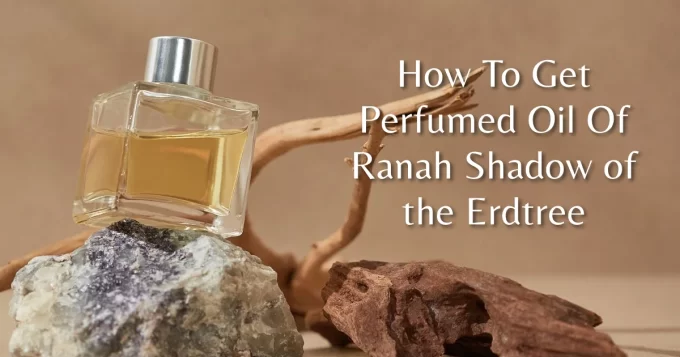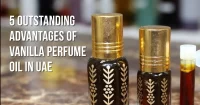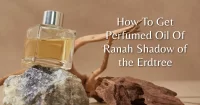“In perfumery, it is one of, if not the, most frequently asked questions. However, as with many big questions, there is no simple answer. These five factors might prevent you from inhaling a Perfume that lasts as long as you would like.”
1. Olfactory Tiredness is the Result of Your Brain Losing Sensitivity to Your Aroma.
The nervous system, which controls our body, has changed over time to become less sensitive to repeated inputs. This adaptive feature enabled our predecessors to successfully negotiate hazardous situations. Therefore, our bodies alert us when we experience something novel—a flavor, smell, sight, or texture—because they are telling us, “This is unfamiliar, pay attention!”
This phenomenon explains why we frequently become unaware of smells we are accustomed to. If you wear the same perfume every day, you can notice a decrease in potency over time or the day. This explains why, even while others can detect the aroma of your home, you might not.
In the same way, your nose and brain gradually get used to the scent applied to your neck. You might eventually become completely blind to the smell. But the smell is still there, as clear as ever in your memory, and people around you could notice it more easily since they haven’t become used to it.
Applying your fragrance to your wrists or another part of your body is an easy fix if you can’t smell it anymore. Remove the smell from your nose to give your olfactory system a chance to reset. This small change can change the chemistry of the perfume and help you recognize it again. If nothing else, the shift in location might startle you the next time you move and smell the scent again.
2. How long a Perfume Stays is Mostly Determined by Personal Preferences.
The olfactory pyramid is a key idea in the development of perfumes, and perfumers regularly allude to it. This pyramid acts as a guide for how the aroma will change over time. But you might be wondering, why is it so crucial. The stages that scents go through to develop, reflecting the erratic nature of their constituents, are represented by the pyramid.
Volatile organic compounds (VOCs) are what give fragrances their scent and appeal. But because they are volatile, these substances eventually dissipate. Different substances have different rates of evaporation, which affects their lifetime. The most volatile notes are fresh citrus, aromatic herbs, and lush greens, which are at the top of the pyramid. Before fading, these transient top notes usually remain on the skin for almost half an hour. The heart notes, which make up the perfume’s core, are found as we proceed down the pyramid.
These last for around an hour to two hours and consist of gentle florals, spices, and some gourmand components. Lastly, the timeless base notes are located at the base of the pyramid. Dense and powerful, these fragrances have leathery, ambery, and woody notes including frankincense, sandalwood, and vanilla. If these richer scents appeal to you, your perfume probably has a longer-lasting smell that stays on your skin for several hours, if not the entire day.
On the other hand, if you’re more into the lightness of green notes, the delicacy of florals, or the freshness of citrus, you could notice that your fragrance dries down faster and needs to be reapplied frequently to stay strong.
Different note categories each have unique scent attributes to suit personal tastes. The chemistry of your skin, however, also has a significant impact on the interactions and durability of these chemicals. Regardless of the notes in the perfume, elements like oiliness or dryness might affect how long it lasts.
3. A Simple Strategy to Extend the Longevity of Your Perfume.
However, mistaking an Extract for an Eau de Toilette can lead to disappointment. So, what sets them apart? Your perfume primarily consists of two components: fragrance concentrate and alcohol. While alcohol is odorless, the “concentrate” contains all the fragrance ingredients in their purest form.
The higher the concentration of this “concentrate,” the more potent and enduring the scent will be. Most perfumes are categorized into one of the following concentrations. At EPC, our perfumes are predominantly highly concentrated Eau de Parfums, leaning towards an extract!
Eau de Toilette is the least concentrated, typically containing around 10-12% fragrance concentrate. On the other hand, Eau de Parfum offers a higher concentration and is often considered the optimal choice, typically containing 20-25% fragrance concentrate. Meanwhile, Extract boasts the highest concentration, usually exceeding 25%.
While the choice of concentration will influence the perfume’s longevity, it also affects its price. Concentration is a significant factor in pricing, with Extracts often commanding a higher cost. In contrast, Eau de Toilettes is the most affordable option, while Eau de Parfums strikes a balance between price and potency. This is why many people, including perfumers, prefer Eau de Parfums.
4. Your Perception of Specific Scents may be Impacted by Partial Anosmia
Many of us have had transient anosmia, such as during disease episodes like COVID-19, but other people have total anosmia, which means they cannot smell any odors at all.
It is more frequent for people to have partial anosmia, in which they are less sensitive to certain scents that other people find overpowering. Numerous scientific elements and nasal features influence this disparity. People might, for example, be allergic to certain base components that are frequently present in perfumes that are musky, woodsy, or ambery.
Perfumers frequently add a range of musks, including galaxolide, muscenone, and habanolide, to their formulas in an attempt to satisfy differing sensitivities. The idea behind this is that people may react differently to one musk than another. Similarly, some people may find it difficult to identify components like Ambroxan and Iso E Super, which are common in the amber-wood group, while others may notice them strongly.
It’s important to understand your limitations even though it’s neither good nor bad to be anosmic to specific components. Applying a fragrance excessively when you’re not conscious of your sensitivity can turn people off. Therefore, to ensure that you and others around you have a nice olfactory experience, it’s necessary to practice mindfulness and moderation when choosing and applying perfumes.
5. Scent Interacts and Changes with Time
The biggest and most intricate organ in our body, our skin changes in response to both internal and external events. These elements have a significant impact on how long-lasting and potent a perfume is.
Your skin type—oily, dry, or normal—among other factors might affect how long a fragrance remains on your skin. Because of the extra moisture, perfumes with volatile top notes tend to cling longer on oily skin. On the other hand, perfumes may evaporate more quickly on dry skin. Applying an unscented moisturizer to the skin before spritzing might help lock in the fragrance and extend its scent on dry skin.
The duration of perfume is also greatly influenced by pH levels. The pH of the skin usually ranges from slightly alkaline to slightly acidic. Regardless of pH level, acidic skin tends to cause fragrances to dry down and fade more quickly, but it also affects how a smell develops on the skin.
It’s critical to track the effects of several scents on your skin over time. Due to differences in skin chemistry and personal tastes, keep note of which perfumes suit your skin type and stay the longest. Furthermore, getting a second perspective can yield insightful information because our noses might not always be able to detect a fragrance’s true effectiveness.
When you go on your next perfume-buying trip, keep these suggestions in mind:
– Recognize how your skin type impacts the lifetime of fragrances.
– Before making a purchase, always test a scent on your skin to be sure it will work well and satisfy you.
Examine natural perfumes; their intricate interactions with skin chemistry and natural chemicals provide a distinct and ever-changing aroma sensation on the skin when compared to synthetic counterparts.
You can improve your olfactory experience and discover aromas that go well with your particular chemistry and tastes by learning how your skin affects fragrance performance and choosing perfumes accordingly.











